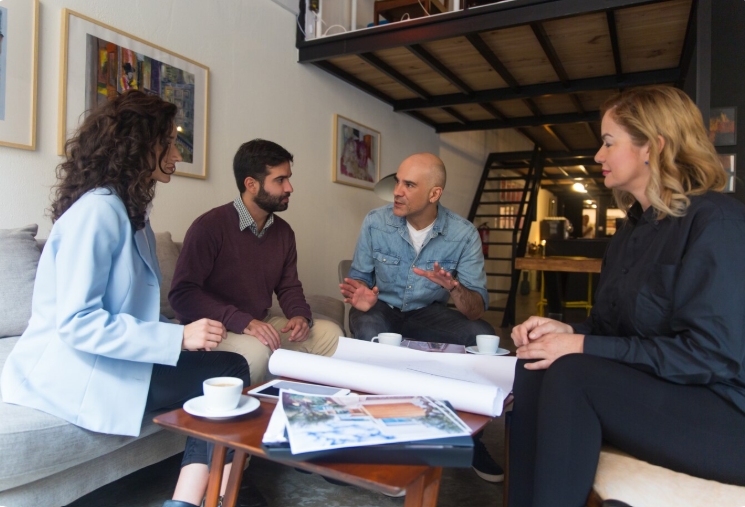
by Dulce Navarro | Jul 7, 2025 | Business, Countries, Culture, Europe, Traditions, Travel, Work
Cultural Nuances in Spanish Business Settings
Spain, with its rich heritage, vibrant culture, and global economic ties, presents both opportunities and challenges for professionals navigating its business environment. Whether you’re launching a startup in Madrid, negotiating contracts in Barcelona, or building a multinational presence from Valencia, understanding the cultural nuances of Spanish business etiquette is vital for sustainable success. This article explores the intricacies of Spanish business culture and provides practical tips for thriving in this dynamic environment.
Understanding the Foundations of Spanish Business Culture
Spanish business culture is deeply rooted in respect, personal relationships, and trust. Unlike more transactional cultures, Spain emphasizes human connections and values the time it takes to build genuine rapport. Business interactions often begin with informal discussions, and it’s common for meetings to start later than scheduled, reflecting a more flexible sense of time.
Hierarchy is also important in Spanish companies, though not as rigid as in some other cultures. Titles and ranks matter, and decisions are often made at the top. This makes it important to identify and engage with key decision-makers early in any negotiation or partnership.
Communication Style: Expressive and Indirect
Spaniards are generally expressive communicators. Gestures, facial expressions, and tone of voice all play a significant role in conveying messages. While honesty is appreciated, direct confrontation is often avoided. Instead, communication tends to be more nuanced and diplomatic. Reading between the lines and understanding non-verbal cues is a critical skill for foreigners doing business in Spain.
Meetings often involve lively discussion and overlapping speech, which should not be mistaken for rudeness. Rather, it is a cultural norm that reflects enthusiasm and engagement.
Building Trust Through Personal Relationships
Trust is the cornerstone of Spanish business relationships. While credentials and expertise matter, establishing a personal connection is often the key to unlocking long-term collaborations. Spaniards prefer doing business with individuals they know and trust. Business lunches, coffee breaks, and dinners are common and should not be rushed—they are opportunities to build rapport and discuss matters beyond work.
Networking is essential. Personal referrals and introductions carry significant weight, and many business deals begin with a strong personal recommendation. As such, investing in relationship-building activities is more than just good etiquette—it’s a strategic necessity.
Work-Life Balance and Business Hours
Spain is known for valuing work-life balance. Although this is evolving with global business demands, many professionals still adhere to traditional business hours, with a mid-day break (or “siesta”) still observed in some regions. The standard workday might begin around 9:00 AM, with a long lunch break around 2:00 PM, and then continue into the early evening.
Understanding and respecting these rhythms is crucial, especially when scheduling meetings or expecting swift replies. Pushing for urgency in a culture that prioritizes balance may backfire and damage the relationship.
The Role of Formality and Appearance
While Spaniards are warm and personable, professionalism and presentation still matter. In business settings, people dress conservatively and elegantly. First impressions are important, and your appearance should communicate competence and respect for the occasion.
Titles such as “Señor” or “Señora” followed by a surname are commonly used, especially in initial meetings. It’s best to wait until invited to switch to a first-name basis.
Negotiations and Decision-Making
Spanish negotiations may seem slower compared to other business environments. Patience is essential. Decisions often involve multiple layers of approval, and rushing the process can be seen as disrespectful. It’s common for discussions to revisit the same points multiple times to build consensus and comfort with the final decision.
Be prepared to engage in lengthy, relationship-driven negotiations that may include social meetings outside the office. Demonstrating long-term commitment is more valued than aggressive negotiation tactics focused solely on short-term gains.
Regional Differences Within Spain
It’s important to note that Spain is not culturally homogeneous. Significant differences exist between regions such as Catalonia, the Basque Country, and Andalusia. Language preferences, business etiquette, and communication styles may vary accordingly. For example, in Catalonia, business may be conducted in Catalan as well as Spanish, and locals may place strong emphasis on regional identity.
Being sensitive to these distinctions can enhance your credibility and show respect for local culture. A one-size-fits-all approach rarely works in Spain, so do your homework and adapt accordingly.
Learning New Languages as an Expat: Strategies for Quick Success
One of the most powerful ways to succeed in Spanish business settings—and expat life more broadly—is to learn the local language. Even a basic understanding of Spanish can significantly improve relationship-building, communication, and everyday integration.
Here are a few quick strategies for language success:
- Immerse Yourself: Spend time listening to Spanish radio, watching Spanish TV shows, and reading local news.
- Use Language Apps: Tools like Duolingo, Babbel, or Rosetta Stone can help you build vocabulary and confidence.
- Hire a Tutor: Personalized guidance accelerates learning and allows you to ask business-specific questions.
- Practice Daily: Speak with locals, even if you make mistakes. Most people appreciate the effort.
- Join Language Meetups: Attending social gatherings where people practice Spanish can offer both language and networking benefits.
Language fluency not only builds stronger business relationships but also demonstrates cultural respect—an invaluable trait in Spain’s professional world.
Stay Connected for More Travel and Lifestyle Inspiration
For more insights into travel, culture, and lifestyle tips, follow me on @salvadorordorica. If you’re seeking professional translation and localization services to enhance your global ventures, visit The Spanish Group — your trusted partner in bridging cultures worldwide.

by Dulce Navarro | Jul 3, 2025 | Countries, Culture, Europe, Lifestyle, Travel
Day Trips from Paris for Wine Lovers
France is globally celebrated for its wine, and Paris, its elegant capital, serves as the perfect launch point for unforgettable day trips into the heart of wine country. Whether you’re a seasoned connoisseur or a curious beginner, the regions surrounding Paris offer an extraordinary variety of vineyards, historical cellars, and wine-tasting experiences. For company directors and business professionals looking to blend leisure with cultural enrichment, these day trips promise refined indulgence just a short train ride or drive away.
1. Champagne: The Bubbly Capital of the World
Only 90 minutes from Paris by train, the Champagne region is an essential destination for sparkling wine lovers. Towns like Reims and Épernay are home to legendary houses such as Moët & Chandon, Veuve Clicquot, and Taittinger. Visitors can tour chalk cellars that date back to Roman times, learn about the méthode champenoise, and enjoy expertly guided tastings.
Épernay’s Avenue de Champagne is often called the “most expensive avenue in the world,” thanks to the millions of bottles aging beneath its surface. For a more intimate experience, family-owned estates in the surrounding hills offer warm hospitality and boutique cuvées.
2. Loire Valley: A Royal Landscape of Wine and Châteaux
Roughly two hours from Paris, the Loire Valley is both a UNESCO World Heritage Site and a viticultural paradise. The region stretches along the Loire River and is famous for its scenic beauty, Renaissance châteaux, and diverse wine styles — from crisp Sauvignon Blanc in Sancerre to lush Chenin Blanc in Vouvray and elegant reds from Chinon.
Private wine tours and tastings are available at numerous estates, and many offer English-speaking guides. This region perfectly combines wine education with architectural wonder, making it a rich and balanced day trip for culture-seekers and wine aficionados alike.
3. Burgundy: Home of Pinot Noir and Chardonnay
Although slightly farther (approximately 2 hours by train to Dijon or Beaune), Burgundy rewards travelers with an unrivaled wine heritage. This is the birthplace of some of the world’s most prestigious Pinot Noir and Chardonnay wines, often cultivated on small parcels of land passed down through generations.
Beaune, the wine capital of Burgundy, offers a charming medieval atmosphere and access to renowned domaines such as Domaine de la Romanée-Conti. Guided vineyard walks, cellar visits, and tastings are widely available, offering insight into terroir-driven wine production.
4. Île-de-France Vineyards: Hidden Gems Near the Capital
Few realize that even within the Île-de-France region itself — the area surrounding Paris — there are small-scale vineyards producing quality wines. Vineyards in Suresnes, Montmartre, and even Versailles maintain centuries-old traditions in viticulture.
While these wines are not widely distributed, they offer an intriguing glimpse into Paris’s agricultural past. A visit to the Clos Montmartre during its annual harvest festival in October is both festive and historically meaningful, complete with parades, tastings, and music.
5. Chablis: Crisp, Mineral-Driven White Wines
Located just over two hours from Paris, Chablis is part of the northern Burgundy region and is known exclusively for its Chardonnay. The wines are renowned for their minerality, crispness, and aging potential — a must-visit for white wine lovers.
The village itself is peaceful and picturesque, offering cellar visits, tasting rooms, and educational tours that delve into the region’s unique Kimmeridgian soil, which plays a critical role in the flavor profile of Chablis wines.
Tips for Planning a Wine Day Trip from Paris
- Use the TGV or regional trains: High-speed rail from Paris makes many of these destinations accessible in under two hours.
- Book tastings in advance: Especially at prestigious houses, reservations are essential.
- Hire a driver or join a guided tour: To fully enjoy tastings without worrying about transport.
- Combine wine with local cuisine: Many estates offer food pairings or can recommend nearby restaurants.
Each of these regions offers its own unique appeal and provides insight into French heritage through the lens of viticulture. Exploring them not only enhances your understanding of wine but also connects you to local history, agriculture, and craftsmanship — all within a short distance of Paris.
Learning New Languages as an Expat: Strategies for Quick Success
As a wine-loving expat immersing yourself in French culture, learning the language can dramatically enhance your experience. Whether you’re attending tastings, networking, or exploring new regions, speaking the language opens doors. Here are a few strategies to accelerate your progress:
- Immerse Yourself: Listen to French podcasts, watch local shows, and try to use the language daily, even in small interactions.
- Take Structured Lessons: Enroll in a language school or use a platform like iTalki for one-on-one tutoring tailored to your level.
- Practice Socially: Join expat and local meetups to practice conversational French in real-world settings.
- Be Patient and Persistent: Fluency takes time. Celebrate small wins and keep practicing, even if you make mistakes.
Learning the local language not only helps in navigating daily life but also deepens your appreciation of regional traditions — especially in culturally rich areas like French wine country.
Stay Connected for More Travel and Lifestyle Inspiration. For more insights into travel, culture, and lifestyle tips, follow me on
@salvadorordorica. If you’re seeking professional translation and localization services to enhance your global ventures, visit
The Spanish Group — your trusted partner in bridging cultures worldwide.

by Dulce Navarro | Jul 3, 2025 | Countries, Culture, Europe, Lifestyle, Traditions, Travel
Exploring European Cities with Deep Cultural Roots
Europe is a mosaic of traditions, languages, architecture, and rich cultural history. For travelers and expats alike, exploring cities with deep-rooted heritage provides a transformative experience — one that connects the past with the present, offering invaluable insight into the evolution of society, art, and identity.
1. Paris, France: The Living Canvas of Art and History
Known as the City of Light, Paris has long been a global hub for art, philosophy, and revolutionary thought. From the Gothic spires of Notre-Dame to the intellectual legacy of the Latin Quarter, Paris is where history meets modern elegance. The Louvre Museum, housing the Mona Lisa and countless masterpieces, showcases centuries of artistic brilliance. Wandering through Montmartre or the Marais, visitors are surrounded by the echoes of Picasso, Hemingway, and Simone de Beauvoir.
Beyond monuments and museums, Paris thrives on its café culture and literary salons, inviting visitors to linger, reflect, and connect with its layered past.
2. Rome, Italy: The Eternal City
Few cities can match Rome’s historic grandeur. As the seat of the Roman Empire and the Catholic Church, the city offers an unrivaled timeline of human civilization. The Colosseum, Pantheon, and Roman Forum are living relics that narrate tales of power, faith, and ingenuity.
But Rome is more than ruins; it is a city where past and present blend effortlessly. A stroll down cobblestone streets reveals tucked-away trattorias, piazzas brimming with local life, and Renaissance art around nearly every corner. Its vibrant culture and culinary excellence make it an irresistible destination for both travelers and long-term residents.
3. Prague, Czech Republic: A Medieval Masterpiece
Prague offers a fairy-tale-like atmosphere with its medieval architecture, charming alleyways, and majestic castles. Often referred to as the “City of a Hundred Spires,” its Gothic and Baroque buildings provide a stunning backdrop for one of Europe’s most picturesque capitals.
The city’s cultural identity is deeply influenced by centuries of philosophical, political, and religious movements. From the Astronomical Clock in Old Town Square to the haunting beauty of the Jewish Quarter, Prague captivates with its mystical charm. Its cultural calendar, filled with music festivals, opera, and theater, makes it an ideal place for culturally curious expats.
4. Lisbon, Portugal: A Tapestry of Exploration and Resilience
Lisbon’s unique blend of Moorish, Gothic, and colonial influences reflects its status as a city shaped by centuries of exploration. Its iconic azulejos (ceramic tiles), melancholic Fado music, and historic trams give it a character that’s both nostalgic and contemporary.
The city’s hills offer panoramic views of the Tagus River and architectural wonders like the Jerónimos Monastery and Belém Tower. As Portugal’s capital increasingly becomes a hub for digital nomads and creative professionals, Lisbon continues to honor its traditions while embracing modernity with open arms.
5. Kraków, Poland: Where Memory and Modernity Intertwine
As Poland’s former royal capital, Kraków boasts a rich legacy of kings, scholars, and artists. Its medieval Old Town, a UNESCO World Heritage Site, is home to the largest market square in Europe and the stunning Wawel Castle.
Kraków’s cultural strength lies in its resilience. Despite historical hardships, it has emerged as a center for innovation, education, and the arts. With a strong café culture, affordable living, and an ever-growing international community, it’s a top choice for those looking to experience Eastern Europe’s deep cultural depth.
6. Barcelona, Spain: The Intersection of Art and Identity
Barcelona is where Catalan identity, modernist architecture, and Mediterranean spirit converge. The works of Antoni Gaudí — most notably the Sagrada Família and Park Güell — have made the city a global symbol of artistic boldness.
Beyond its artistic roots, Barcelona’s distinct language (Catalan), political history, and lively street life make it a deeply cultural city. From flamenco to festivals like La Mercè, every corner of Barcelona celebrates its heritage with passion and pride.
Learning New Languages as an Expat: Strategies for Quick Success
Living in a new country often comes with a linguistic learning curve. However, immersing yourself in the local culture offers unparalleled opportunities to master a new language. Here are a few strategies for faster success:
- Practice Daily: Use language apps, flashcards, and online lessons to reinforce learning every day.
- Join Language Exchange Groups: Engage in local meetups where native speakers help you practice conversational skills.
- Watch Local Media: Films, TV shows, and radio in the target language are great for improving listening comprehension and vocabulary.
- Embrace Mistakes: The best way to learn is by speaking. Don’t fear making errors — it’s part of the process.
- Get a Language Coach or Tutor: Personalized guidance can help accelerate learning and correct bad habits early.
Fluency opens doors not only to deeper cultural integration but also to professional growth and personal enrichment.
Stay Connected for More Travel and Lifestyle Inspiration.
For more insights into travel, culture, and lifestyle tips, follow me on @salvadorordorica. If you’re seeking professional translation and localization services to enhance your global ventures, visit The Spanish Group — your trusted partner in bridging cultures worldwide.

by Dulce Navarro | Jul 2, 2025 | Countries, Culture, Languages, Traditions, Travel
Language Preservation: Why It Matters in a Connected World
In an era where digital communication allows us to connect across continents in seconds, it’s easy to assume that language barriers are dissolving. English, Mandarin, Spanish, and a few other major languages dominate online and business communication. But beneath this globalized surface, thousands of lesser-spoken languages are rapidly disappearing. Language preservation isn’t just about words—it’s about protecting culture, knowledge, and identity. In a connected world, the urgency to preserve linguistic diversity has never been greater.
The Cultural Value of Language
Languages are more than mere tools for communication. They are repositories of a community’s collective memory, values, beliefs, and unique worldview. Each language carries with it idioms, expressions, oral histories, songs, and customs that may not be easily translatable or understandable in another tongue. When a language dies, we lose not just vocabulary, but entire perspectives on life and human experience.
For indigenous and minority communities, language is central to cultural identity. It anchors traditions, preserves ancestral knowledge, and fosters a strong sense of belonging. Preserving a language is, therefore, an act of cultural preservation—one that strengthens social cohesion and intergenerational continuity.
What’s at Risk: The Disappearance of Languages
According to UNESCO, nearly 40% of the world’s 7,000+ languages are endangered. Many of them are spoken by small communities—often in remote or marginalized regions—and are at risk of vanishing within a generation. In some cases, only a handful of elderly speakers remain.
Globalization, urbanization, and the dominance of a few world languages have accelerated this trend. Younger generations are often encouraged to adopt dominant languages for better education and job prospects, while native tongues are neglected or even discouraged in formal settings. Over time, fluency in ancestral languages diminishes until they’re lost entirely.
Why Language Preservation Benefits Everyone
Preserving linguistic diversity isn’t only beneficial for native speakers—it enriches humanity as a whole. Here’s why:
- Scientific and Ecological Knowledge: Many indigenous languages contain unique knowledge of local ecosystems, medicinal plants, and sustainable living practices. Losing the language can mean losing centuries of irreplaceable wisdom.
- Cognitive and Academic Benefits: Multilingual individuals often show enhanced cognitive flexibility, problem-solving skills, and creativity. Learning and preserving diverse languages can thus have educational advantages.
- Social Inclusion: Language rights are human rights. Ensuring that communities can communicate in their native language promotes equality and reduces social marginalization.
- Economic Opportunities: Languages open doors to new markets, tourism opportunities, and cultural exchanges, benefiting both local communities and global partners.
The Role of Technology in Language Preservation
Far from being a threat, digital technology can also be a powerful ally in preserving endangered languages. Mobile apps, digital dictionaries, voice recordings, and AI-powered translation tools are now being used to archive and teach disappearing languages.
Platforms like YouTube and social media provide visibility for minority languages, allowing speakers to create and share content with a global audience. Universities and nonprofits are also partnering with local communities to document and revitalize their native languages through digital storytelling, mobile learning, and cloud-based archives.
The Importance of Translation and Localization
For businesses expanding globally, language preservation intersects with translation and localization. It’s not enough to simply translate words—you need to understand the cultural context behind them. This is where professional translation services become vital.
Organizations like The Spanish Group specialize in accurate, culturally sensitive translations that respect linguistic nuances. Whether adapting marketing campaigns, legal documents, or product instructions, high-quality localization ensures that messages resonate authentically with the target audience while respecting local language and customs.
Supporting such services not only helps businesses succeed internationally but also promotes a more inclusive and linguistically respectful global economy.
How Individuals Can Help Preserve Languages
Language preservation isn’t solely the responsibility of linguists or cultural institutions—anyone can contribute. Here’s how:
- Learn and use minority or indigenous languages, even at a basic level, to keep them alive in daily use.
- Support media, books, music, and content in endangered languages.
- Advocate for multilingual education and linguistic rights in your community or country.
- Partner with translation services that prioritize linguistic diversity and inclusivity.
By valuing linguistic diversity in our personal and professional lives, we foster a world that respects and celebrates human heritage.
Learning New Languages as an Expat: Strategies for Quick Success
Whether you’re moving abroad for work, study, or personal growth, learning the local language is one of the most effective ways to integrate and thrive. Here are a few proven strategies for success:
- Immerse Yourself: Engage with locals, attend community events, and avoid relying solely on English-speaking circles.
- Use Technology: Apps like Duolingo, Babbel, and Memrise make it easy to practice anywhere, anytime.
- Hire a Tutor: A professional language coach can tailor lessons to your needs and correct your mistakes in real-time.
- Practice Daily: Consistency beats intensity. Even 15 minutes a day can lead to measurable improvement over time.
- Watch and Listen: Consuming local media—TV shows, podcasts, and music—helps with listening skills and cultural familiarity.
Embracing the language of your new home not only enriches your experience but also deepens your connection to the community, culture, and daily life.
Stay Connected for More Travel and Lifestyle Inspiration. For more insights into travel, culture, and lifestyle tips, follow me on Instagram
@salvadorordorica. If you’re seeking professional translation and localization services to enhance your global ventures, visit
The Spanish Group — your trusted partner in bridging cultures worldwide.

by Dulce Navarro | Jul 2, 2025 | Business, Countries, Europe, Lifestyle, Residency, Travel, Work
Expat Entrepreneurs in Spain: Starting a Business Abroad
Spain, with its warm climate, relaxed lifestyle, and vibrant culture, is quickly becoming a hotspot for expat entrepreneurs. From Barcelona’s buzzing startup scene to Madrid’s strong business infrastructure and the coastal allure of Valencia and Malaga, the country offers a welcoming environment for foreigners looking to launch a venture. But starting a business in a new country comes with its own set of challenges — from legal requirements to cultural adaptation and language barriers.
This guide outlines key considerations and strategies for expats looking to start a business in Spain, providing insights into legal steps, local support systems, and ways to thrive as a foreign entrepreneur.
1. Understanding the Spanish Business Climate
Spain ranks as one of the most entrepreneurial countries in Europe. Its modern infrastructure, digital economy, and growing support for innovation make it a great place for startups and small businesses. Sectors like tourism, e-commerce, food and beverage, tech, and renewable energy are particularly attractive for foreign investors and entrepreneurs.
Major cities like Madrid, Barcelona, and Valencia are home to business incubators, co-working spaces, and a large international community that can help ease your transition.
2. Legal Structures and Residency Requirements
Before starting your business, it’s important to choose the right legal structure. In Spain, common forms include:
- Autónomo (Self-Employed): Ideal for freelancers or solo entrepreneurs.
- Sociedad Limitada (S.L.): A limited liability company, best for small to medium-sized businesses.
- Sociedad Anónima (S.A.): Suitable for large corporations.
Expats from the EU/EEA can start a business without a visa, but non-EU nationals will need to apply for a self-employment visa (visado de trabajo por cuenta propia). The process includes submitting a detailed business plan, financial forecasts, proof of investment capital, and evidence of relevant experience.
3. Taxation and Financial Compliance
Spain has a progressive tax system, and understanding your obligations as a business owner is essential. Taxes include:
- Corporate Tax (Impuesto de Sociedades): 25% for most companies.
- VAT (IVA): 21% standard rate, with reduced rates for certain goods/services.
- Personal Income Tax (IRPF): Applies to autónomos based on earnings.
Hiring an experienced local accountant is highly recommended. They can help you navigate quarterly filings, tax deductions, and social security contributions — all critical to avoiding costly mistakes.
4. Business Banking and Capital Requirements
Opening a business bank account in Spain typically requires a NIE (Foreigner Identification Number), passport, proof of address, and company registration documents. Some banks may also request a business plan.
For S.L. companies, a minimum share capital of €3,000 is required, which must be deposited into a Spanish bank account before registration is complete. Most entrepreneurs also register with the local chamber of commerce and the Spanish tax authority (Agencia Tributaria).
5. Local Support and Networking
Spain offers several government-backed programs and incubators to support entrepreneurs:
- ICEX: Offers international business support and market entry guidance.
- Red.es: Supports digital transformation and innovation grants.
- ENISA: Provides loans to startups and small businesses.
Networking is key to success in Spain’s business environment. Attend local entrepreneur meetups, industry conferences, and coworking events. Being part of a community of fellow expats and locals can provide valuable insights and emotional support.
6. Cultural Adaptation and Business Etiquette
Doing business in Spain means understanding local norms and building trust. Spaniards value face-to-face meetings, personal connections, and a sense of formality in business interactions. It’s common to have lengthy conversations before diving into business topics, and punctuality, while appreciated, may be flexible depending on the region.
Learning to adapt to slower administrative processes and appreciating the local rhythm will help manage expectations and avoid frustration. Patience, persistence, and respect for local customs go a long way.
7. Language as a Tool for Business Growth
While many Spaniards in urban areas speak English, operating your business in Spanish will help you connect more deeply with clients, vendors, and institutions. Translating your website, marketing materials, and legal documents professionally is essential to building credibility.
If you’re not fluent, consider hiring bilingual staff or using professional translation services. Partnering with a reliable provider like The Spanish Group ensures your message is accurate and culturally appropriate — a must for success in a foreign market.
Learning New Languages as an Expat: Strategies for Quick Success
Becoming fluent in Spanish not only improves daily life but can significantly enhance your business success. Here are a few tips to accelerate your language learning:
- Immerse yourself daily: Watch Spanish shows, listen to local radio, or read the news.
- Use language apps: Duolingo, Babbel, and Memrise are great for building a strong foundation.
- Practice speaking: Join conversation groups or hire a tutor to build confidence.
- Label your surroundings: Put sticky notes on household items to reinforce vocabulary.
Remember — consistency beats perfection. Making mistakes is part of the journey, and locals often appreciate the effort. The more you engage, the faster your skills will improve.
Stay Connected for More Travel and Lifestyle Inspiration
For more insights into travel, culture, and lifestyle tips, follow me on @salvadorordorica. If you’re seeking professional translation and localization services to enhance your global ventures, visit The Spanish Group — your trusted partner in bridging cultures worldwide.

by Dulce Navarro | Jul 1, 2025 | Countries, Europe, Lifestyle, Travel, Work
Remote Work Travel Tips for Staying Productive Abroad
In today’s increasingly mobile and digital world, more professionals are embracing the freedom of remote work while traveling abroad. Whether you’re a digital nomad, a company executive exploring new markets, or an entrepreneur taking meetings across continents, staying productive while on the move can be both exciting and challenging. With the right strategies, you can maximize your efficiency, maintain work-life balance, and enjoy the benefits of global exploration.
1. Plan Ahead with Your Time Zones
One of the biggest hurdles in remote work abroad is time zone management. Scheduling meetings across different time zones requires foresight. Tools like World Time Buddy or Google Calendar’s built-in world clock can help you visualize availability and avoid late-night surprises.
Set your calendar to reflect your current time zone and communicate clearly with your team about your working hours. If possible, overlap at least 2–3 hours with your core team to maintain communication and collaboration.
2. Choose Accommodation with Strong Wi-Fi and a Workable Setup
Never assume a destination has good internet — always confirm. Check reviews or use platforms like Workfrom or Nomad List to evaluate connectivity in specific cities or neighborhoods. Many co-living and co-working spaces also offer high-speed internet and office amenities tailored for remote professionals.
When booking an Airbnb or hotel, ask the host for a screenshot of the Wi-Fi speed test. A stable connection is crucial for video calls, file sharing, and time-sensitive tasks.
3. Create a Portable Workspace
Invest in gear that keeps you productive anywhere: a lightweight laptop, noise-canceling headphones, a foldable stand, and a portable mouse. Consider a compact ring light if you’re frequently in meetings — good lighting helps maintain a professional image.
Stick to a routine that mimics your home office. Start your day with a checklist and organize your space — even if it’s a corner of a hotel room or a café table — to enter “work mode.”
4. Use Digital Tools for Workflow and Collaboration
Cloud-based tools like Asana, Slack, Notion, and Google Workspace allow you to work seamlessly across borders. Set up project dashboards, share real-time updates, and ensure files are accessible to everyone on your team.
Schedule daily or weekly check-ins to keep everyone aligned. Transparency in tasks and deadlines helps teams stay connected despite physical distance.
5. Stick to a Routine and Set Boundaries
Traveling can disrupt your internal clock and daily habits. To stay productive, establish a clear work schedule — and more importantly, respect it. Define your start and end times, plan breaks, and make space for exploration without letting work creep into your downtime.
Use tools like RescueTime or Focus@Will to monitor productivity and minimize distractions. Boundaries are key to preventing burnout.
6. Join Local Co-Working Spaces or Networking Groups
Isolation can affect productivity and morale. Working from co-working spaces not only provides reliable internet and a structured environment, but also connects you with a community of professionals. Sites like WeWork, Regus, or local alternatives often have daily passes and community events.
Attend networking meetups or language exchange groups — you never know where you might meet a new client, collaborator, or friend.
7. Prioritize Health and Work-Life Balance
Time zone changes, unfamiliar foods, and long travel days can disrupt your health. Make time for exercise, whether it’s a walk through the city or a hotel room yoga session. Stay hydrated, eat nourishing meals, and get adequate sleep to stay focused.
Mental health is just as important — journaling, meditation apps, or scheduled screen-free time can help you reset and stay centered.
8. Backup Everything
Remote work abroad comes with unpredictable risks: lost luggage, tech failure, or internet outages. Use cloud backups like Dropbox or iCloud, and keep important documents saved both online and offline. Consider carrying a USB backup and a small surge protector.
For extra safety, consider international travel insurance that covers work equipment and medical care.
Learning New Languages as an Expat: Strategies for Quick Success
Living abroad is the perfect opportunity to embrace new languages and cultures. To pick up a language quickly, immerse yourself daily — label household items, watch local TV, listen to music in the target language, and use apps like Duolingo, Babbel, or Memrise. Consider hiring a local tutor for structured lessons, or join a conversation group.
Most importantly, practice without fear. Making mistakes is part of learning. Locals appreciate the effort, and you’ll find yourself picking up colloquial expressions and cultural insights faster than expected.
Language is more than just communication — it’s a gateway to deeper experiences and meaningful connections abroad.
Stay Connected for More Travel and Lifestyle Inspiration
For more insights into travel, culture, and lifestyle tips, follow me on @salvadorordorica.If you’re seeking professional translation and localization services to enhance your global ventures, visit The Spanish Group — your trusted partner in bridging cultures worldwide.






